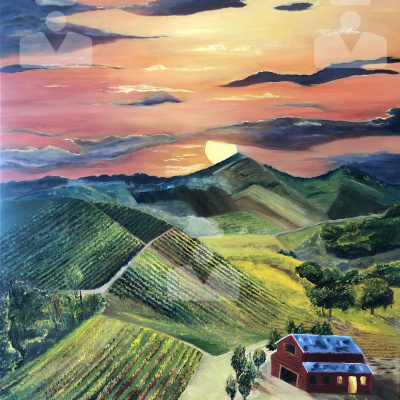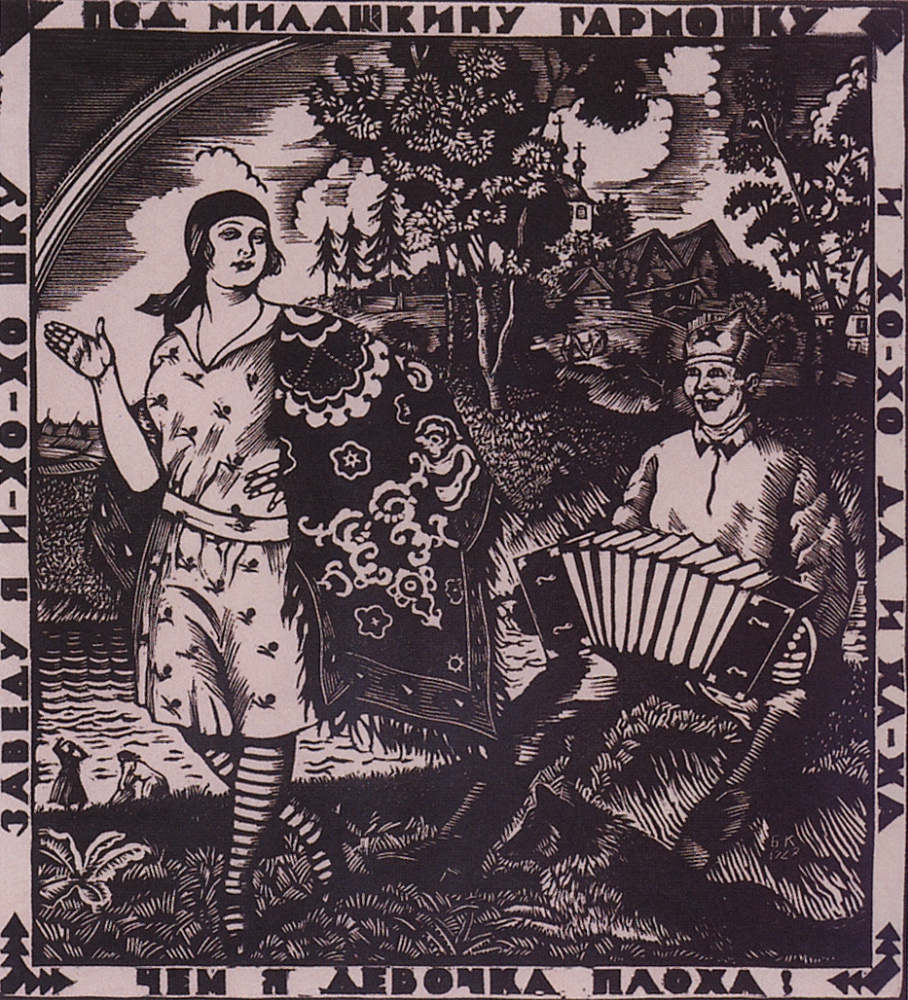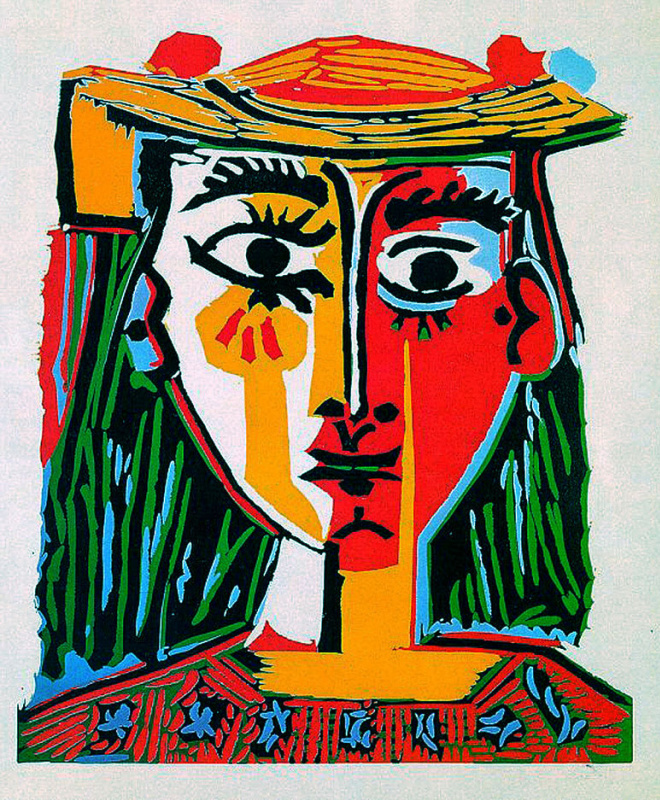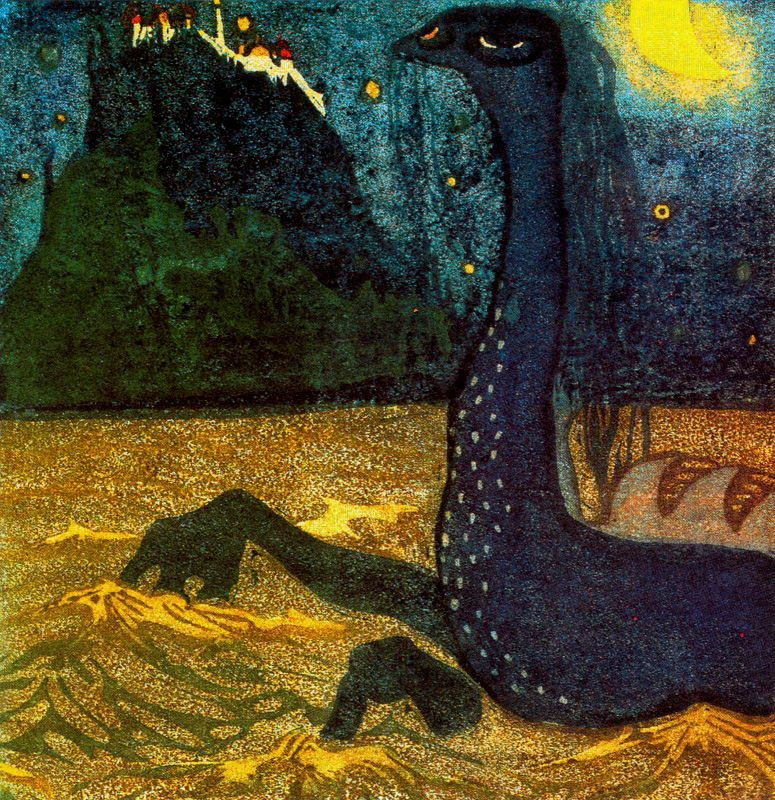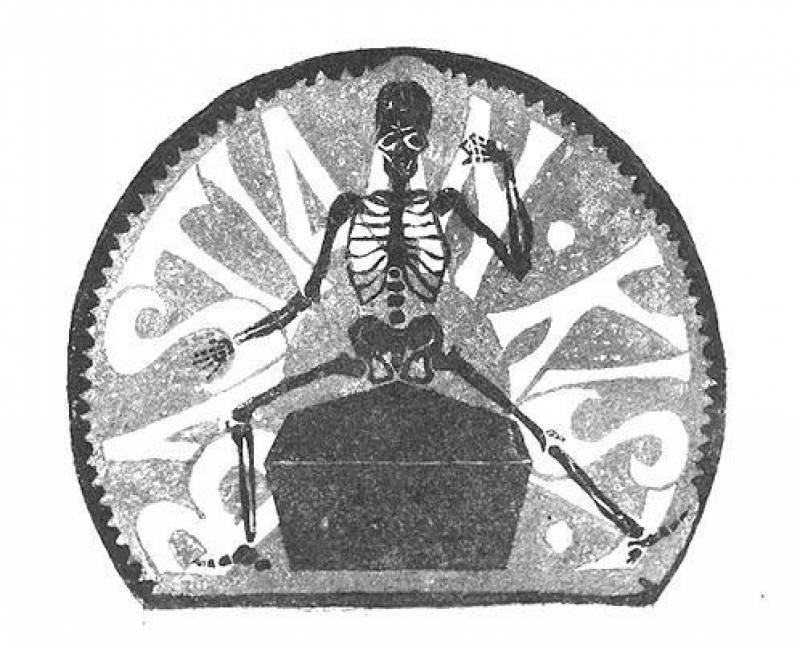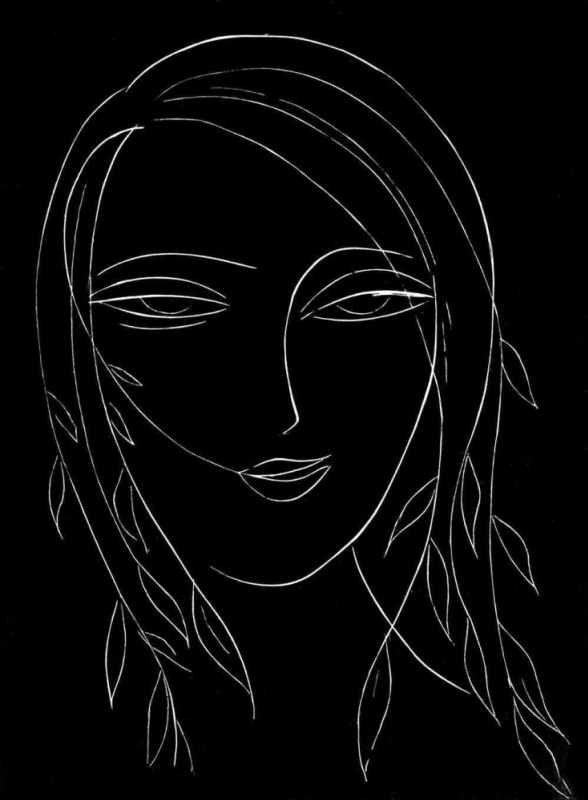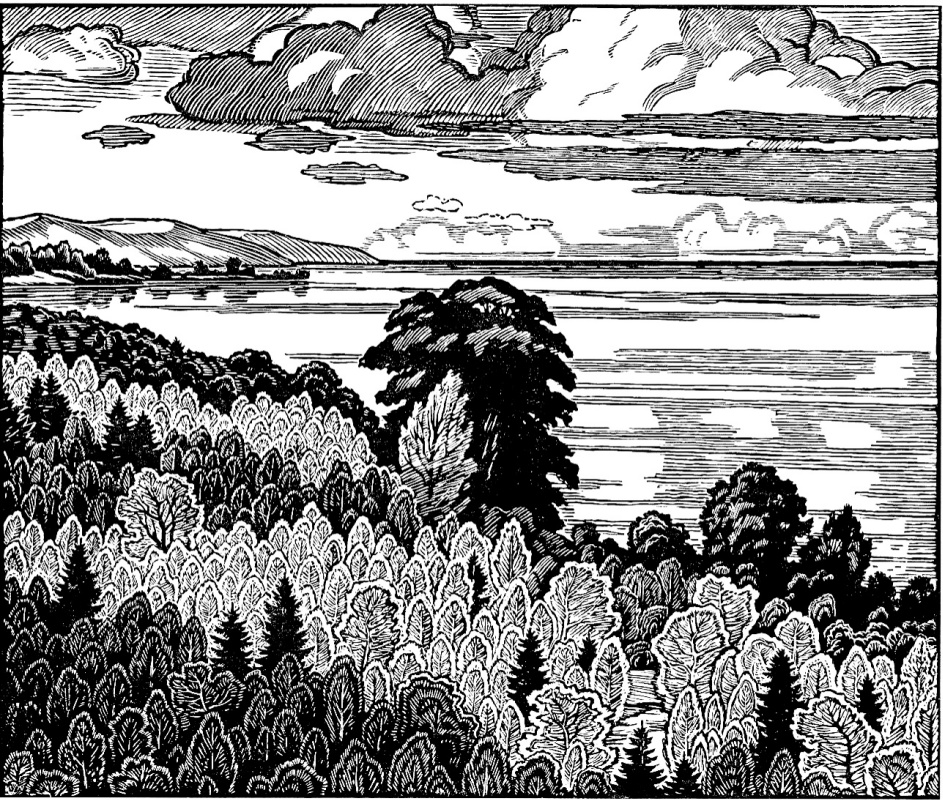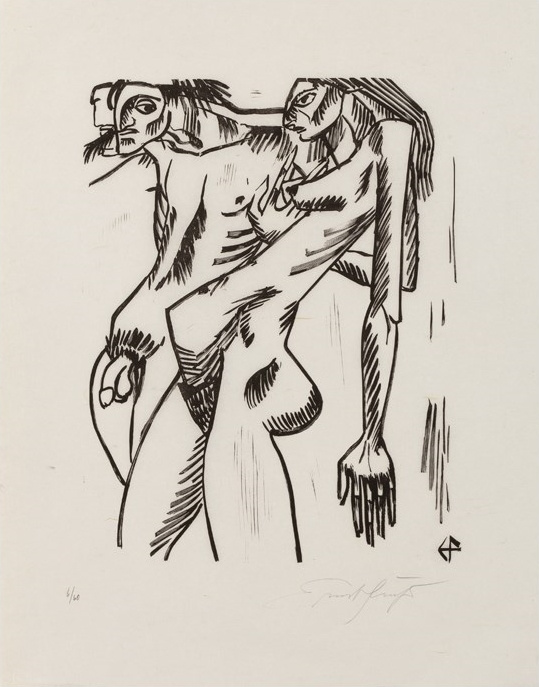Linocut is a way of using linoleum to create prints. Along with woodcut
, it belongs to relief techniques, where protruding parts of the plate are to leave marks on the paper. Although linoleum itself was invented as a floor covering in the 1860s, the linoleum technique was first tried out sometime between 1905 and 1913 by the artists of the Die Brücke group in Germany; their wallpaper was printed in a similar way.
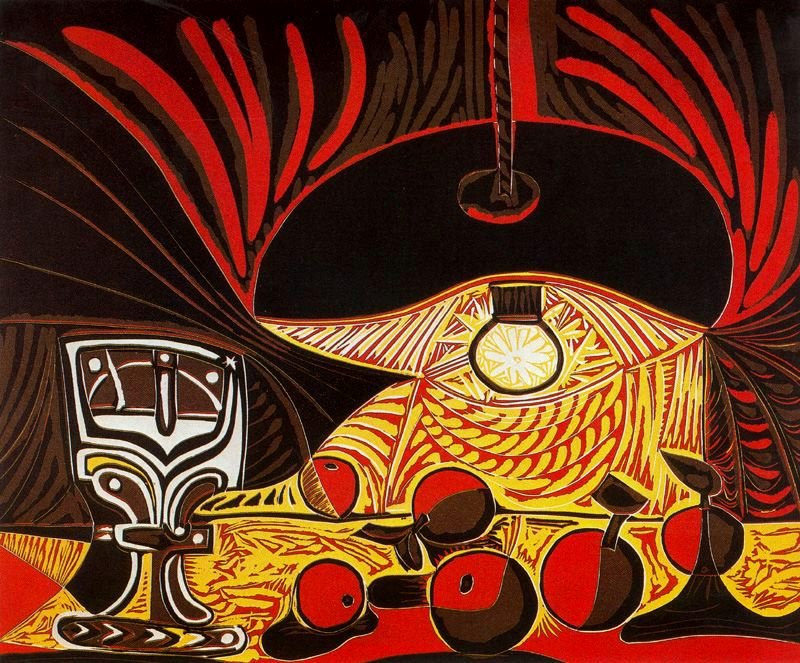
Description of the linocut technique. The production of prints begins with the application of a relief on a linoleum fragment 2.5 to 5 mm thick. The mirror image is cut with a sharp knife or V-shaped chisel. A roller is then used to coat the sheet with the same type of ink used in woodcut printing. It should be borne in mind that a large amount of ink can flood small parts, and if there appears too little ink, some areas may remain unprinted. A sheet of paper is placed on the painted surface and pressed against the matrix with a press or by hand.
Henri Matisse, Florentine (1938). Private collection
Nuances of linocut. This smooth material has no directional grain, so you are free to carve in any direction you like, and can use woodcut or engraving tools. While the surface’s soft quality can make carving much easier, it often hinders the ability to create fine lines.
Coloured linocut prints can be made by cutting out separate matrices for each intended colour, just like in woodcut. Pablo Picasso demonstrated another way to use one piece of linoleum: having applied another colour to the paper, the artist cleaned the plate and cut off the already used fragments, only leaving those that still need to be painted.
Due to its simplicity and cheap materials, this method is widely used in schools to introduce children to the art of printmaking. Beginner and non-professional artists also often start with linoleum before moving on to wood. Since this material is relatively thin and soft, you are not obliged to use a printing press to get an impression on paper, as it is possible to pressing it with the back of a wooden spoon, for example.
Under Milashkina harp...
1927, 30×27 cm
Interesting facts about linocut. The technique became widespread thanks to Pablo Picasso and Henri Matisse. The first Russian artist to use linocut was Nikolai Sheverdyaev, whose works were exhibited in Paris in 1907. In 1911, the Czech émigré Vojtěch Preissig first presented his "linoleum engraving" in New York. In his publications on linocut in 1926—1929, the artist and printmaker Pedro Joseph de Lemos introduced new methods for colour printing, including the initial printing of key blocks.
Maurits Cornelis Escher, Ivan Pavlov, Boris Kustodiev, Vladimir Favorsky, Alexander Deineka, Jacques Hnizdovsky, Georg Baselitz and many others used linocut in their work. Today linocut is popular with street artists.
Maurits Cornelis Escher, Ivan Pavlov, Boris Kustodiev, Vladimir Favorsky, Alexander Deineka, Jacques Hnizdovsky, Georg Baselitz and many others used linocut in their work. Today linocut is popular with street artists.
Vivid examples of linocut. Woman with Hat (1963) was precisely the print that Picasso created with one matrix instead of many blocks for different colours. He started with the lightest colour and ended up with the darkest one. In 2015, the portrait of his wife and muse Jacqueline Roque was sold at Christie’s in London for $ 461,617.







